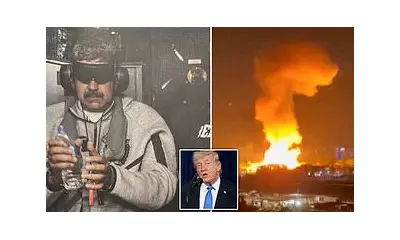
In a remarkable display of international sentiment, both Russia and Saudi Arabia suffered unexpected defeats in their bids for United Nations Security Council seats during Thursday's General Assembly vote at the New York headquarters.
The outcome represents a significant diplomatic setback for Moscow, which has maintained a permanent presence on the powerful 15-nation council since the UN's establishment. Meanwhile, Iraq and the United Arab Emirates successfully secured the available positions in a vote that revealed shifting global alliances.
A Surprising Diplomatic Outcome
The secret-ballot election saw 193 member states deliver a clear message through their voting patterns. Russia's failure to obtain a seat from the Eastern European group, despite running unopposed, signals growing international discontent with Moscow's foreign policy positions.
Saudi Arabia's simultaneous rejection from the Asia-Pacific group adds another layer to this diplomatic drama, suggesting that traditional power dynamics within the UN are undergoing notable changes.
The Winning Nations
Iraq emerged victorious with 190 votes, securing one of the two available seats in a strong show of support from the international community. The United Arab Emirates joined them with 179 votes, indicating broad acceptance of their candidacy.
These appointments to the Security Council, which holds responsibility for maintaining international peace and security, will commence in January and extend through 2026. The five permanent members—China, France, Russia, the United Kingdom, and the United States—maintain their positions with veto power.
Regional Representation Shifts
The Eastern European group now faces the unusual situation of having an empty seat that Russia was expected to fill. This development raises questions about how regional representation will be addressed in the coming months.
Similarly, the Asia-Pacific group's rejection of Saudi Arabia in favour of other candidates suggests evolving priorities among member states when selecting which nations should hold influential positions on the world stage.
This vote serves as a potent reminder that diplomatic influence cannot be taken for granted, even for nations with considerable economic or political power. The results will undoubtedly shape international relations and Security Council dynamics for years to come.





